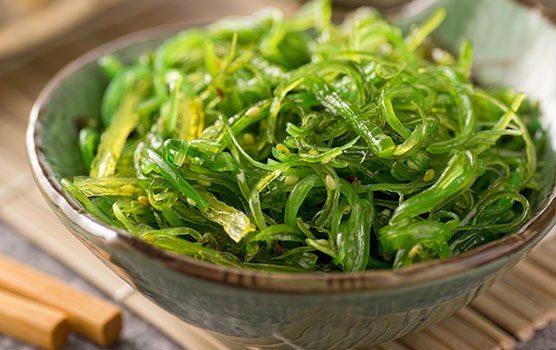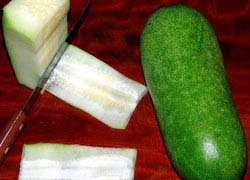Seaweed Can Be a Great Food Source for Diabetic Patients.
A new study from South Korea, published in the journal Nutrients, reveals that consuming certain types of seaweed could be a promising solution for blood sugar control. More specifically, brown seaweed may serve as an excellent nutritional supplement for diabetic patients.
Researchers at the Korea National University of Science and Technology, from the Department of Food Science and Biotechnology, while studying recommended diets for managing type 2 diabetes, indicated that certain types of seaweed contain “diverse nutritional components” that provide benefits related to blood sugar regulation, improve gut health, and enhance lipid levels.

Seaweed.
The research team analyzed 23 studies from various databases to explore the effects of brown seaweed and its extracts on different population groups, including healthy individuals and those with pre-diabetes and type 2 diabetes.
In the seaweed-consuming group, results showed “significant improvements” in post-meal blood sugar levels, glycated hemoglobin (HbA1c), and the assessment of homeostatic model assessment of insulin resistance (HOMA-IR), which measures insulin resistance status.
Consuming larger amounts of seaweed—1,000 mg or more—showed greater benefits compared to smaller amounts. Brown seaweed and algae are believed to be the most effective.
Based on these findings, the researchers concluded: “Incorporating seaweed could be a promising strategy to reduce post-meal blood sugar levels, HbA1c, and HOMA-IR, thus allowing for better blood sugar management and reducing the risk of type 2 diabetes.”
Dr. Joe Whittington, an emergency physician in California, carefully reviewed the study findings, deeming them relatively “exciting.” He stated: “These results suggest that seaweed could be a valuable addition to dietary strategies aimed at managing or even preventing type 2 diabetes, especially in preventing spikes in blood sugar after meals.”
The doctor also noted that the effects would be more pronounced when consuming seaweed in larger doses and over a longer duration, particularly over a 12-week period.
He revealed: “This information is crucial for anyone considering seaweed as a functional food for diabetes management, as it indicates that both dosage and duration are important factors for effectiveness.”
While the increasing global consumption of seaweed is a “positive trend,” Dr. Whittington pointed out that safety assessments regarding factors such as “iodine levels, heavy metals, and other potential contaminants” are still needed.

Seaweed is very good for diabetics.
The doctor also emphasized some limitations of the aforementioned study, such as the “lack of research on seaweed extraction methods.”
Dr. Whittington stated: “Future studies will address these gaps, combining comparisons of the effects of brown, red, and green algae to provide a more comprehensive understanding of their potential in diabetes management.”
As a healthcare professional, Whittington mentioned: “Seaweed is a natural and cost-effective functional food that could become an effective new approach alongside traditional diabetes treatments.”
“However, it is essential to integrate these findings into clinical practice, considering individual patient profiles and potential interactions with existing therapies.”
Whittington suggested that “more research is needed, particularly in diverse populations and in conjunction with conventional treatment methods.”
He also cautioned: “Patients should consult healthcare professionals before using any new functional food, especially those with chronic conditions such as diabetes.”




















































